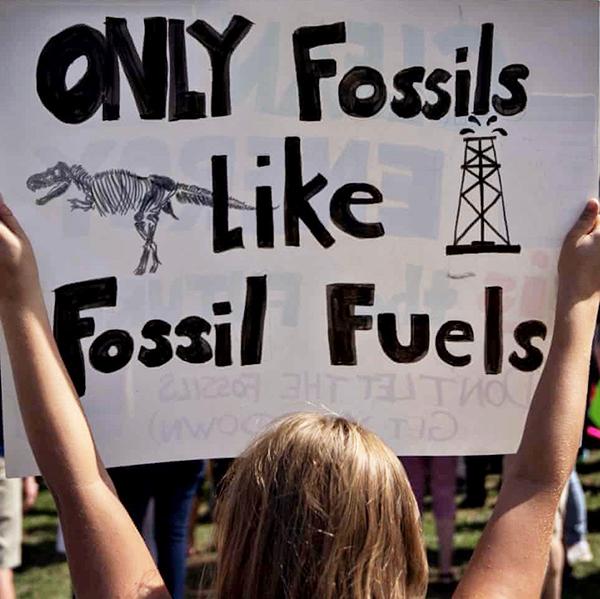During the international climate student strike on Friday, September 20th, Mr. Ciofalo’s 7th grade took Robert Frost’s poem—about taking the load less traveled—to heart and participated in their own way. The main lesson began with a recap of what they had learned during their Environmental Science block about the climate crisis from their 6th-grade year. The 7th grade then watched an interview from Democracy Now with the heroic Swedish leader of the climate strike, 16-year-old Greta Thunberg, to warm them up for their own interview. Following the interview, the 7th graders wrote impassioned letters to a government representative regarding how they feel about the climate crisis as rising teenagers. A handful of the 7th graders then went with parents during lunch to participate in climate student strike and came back with a feeling that they were so glad they had the courage to do that (Festival of Courage in action!). Here are snippets of the main lesson interview:
What do you think about Greta Thunberg?
I think the way she is handling her role is amazing. Her bravery is exemplary. But maybe she shouldn’t strike every Friday. It’s not as powerful if it becomes routine.
Liam H.
I admire that she is actively doing something.
Sara W.
She raises a good point about why she strikes from school: if the future of humanity is uncertain, maybe going to school on a Friday to educate herself for a future that may not happen isn’t a priority.
Jourdan T.
Her bravery and knowledge about facing the truth of the climate crisis as a teenager empowers us.
Sonia K.
There’s a lot of talk about the future and the climate crisis. The crisis is here now and that is kind of her point.
Myles W.
Have any of you actively changed your lifestyles since becoming aware of the climate crisis?
It’s hard, but I have tried to change my diet.
Jourdan T.
We have tried to do small things, though it won’t necessarily do a lot for the warming of the planet, such as not using plastic bags or plastic straws.
Hassan H.
I started at least using power strips, because if you leave something plugged in, it still takes energy. And we all know that fossil fuels, which create electricity, are the primary reason for the warming of the earth. I am also going to take more public transportation.
Sonia K.
We bring reusable bags to the grocery store.
Mila S.
It feels good to be able to walk to school.
Will S.
What do you think about a climate strike as it relates to you being a Baltimore Waldorf School student?
I’m not sure how affective it would be here in Baltimore. Maybe if all the students converged on Washington, D.C., it would be more powerful.
Chase L.
Having one class or one teacher strike would not be as powerful as having the whole school go on strike. That would get noticed. And isn’t that the point?
Will S.
I think no matter where you strike, you get noticed and that in itself would seem to make a difference, even if one person sees you.
Sara W.
I just think it’s important to think out how and when to protest, yes, to get noticed, but also to be safe.
Ellie Z.
Do you think writing a letter to a government representative will be helpful?
I guess I am concerned about the amount of mail that is received and whether it will be read, but I think if they’re read, it could be affective especially coming from a group of Waldorf students. If letters come from a group of students, maybe that will motivate the representative to take notice and do some work on our behalf.
Grete S.
We just need to make the letters not the same but different, from our own personal viewpoint.
Ellie Z.

